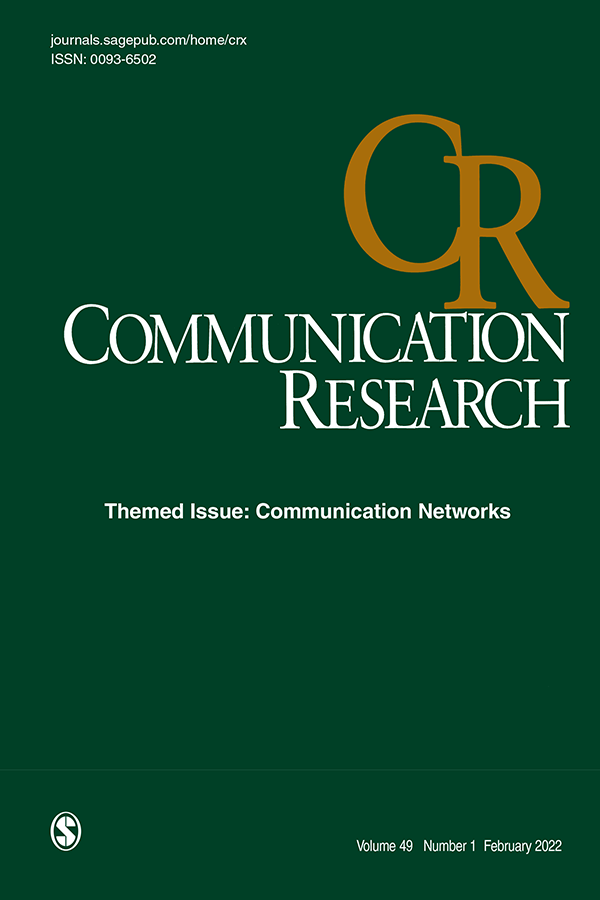社会认可信号对制造网络仇恨的影响:理论阐释
IF 3.2
1区 文学
Q1 COMMUNICATION
引用次数: 0
摘要
本文阐述了一种中程理论,用以预测和解释仇恨信息在社交媒体上的传播和放大。它建立在一个假设之上,即人们发布仇恨信息是为了从其他社交媒体用户那里获得社会认可的信号。它阐明了涉及几个概念的具体命题,包括社会认可信号、不认可和社会认可的充分性。六个衍生假设预测了这些动态如何应用于涉及仇恨张贴的特定社交媒体互动环境中。报告回顾了适用于这些假设的实证研究,提出了未来研究的问题,并回顾了这种方法与其他理论之间的一致性和区别。本文章由计算机程序翻译,如有差异,请以英文原文为准。
The Effects of Social Approval Signals on the Production of Online Hate: A Theoretical Explication
This essay explicates a middle range theory to predict and explain the propagation and magnification of hate messages on social media. It builds upon an assumption that people post hate messages in order to garner signals of social approval from other social media users. It articulates specific propositions involving several constructs, including signals of social approval, disapproval, and sufficiency of social approval. Six derived hypotheses predict how these dynamics apply in certain contexts of social media interaction involving hate posting. It reviews empirical research that applies to these hypotheses, raises issues for future research, and reviews concurrence and distinctions between this approach and other theories.
求助全文
通过发布文献求助,成功后即可免费获取论文全文。
去求助
来源期刊

Communication Research
COMMUNICATION-
CiteScore
17.10
自引率
0.00%
发文量
20
期刊介绍:
Empirical research in communication began in the 20th century, and there are more researchers pursuing answers to communication questions today than at any other time. The editorial goal of Communication Research is to offer a special opportunity for reflection and change in the new millennium. To qualify for publication, research should, first, be explicitly tied to some form of communication; second, be theoretically driven with results that inform theory; third, use the most rigorous empirical methods; and fourth, be directly linked to the most important problems and issues facing humankind. Critieria do not privilege any particular context; indeed, we believe that the key problems facing humankind occur in close relationships, groups, organiations, and cultures.
 求助内容:
求助内容: 应助结果提醒方式:
应助结果提醒方式:


